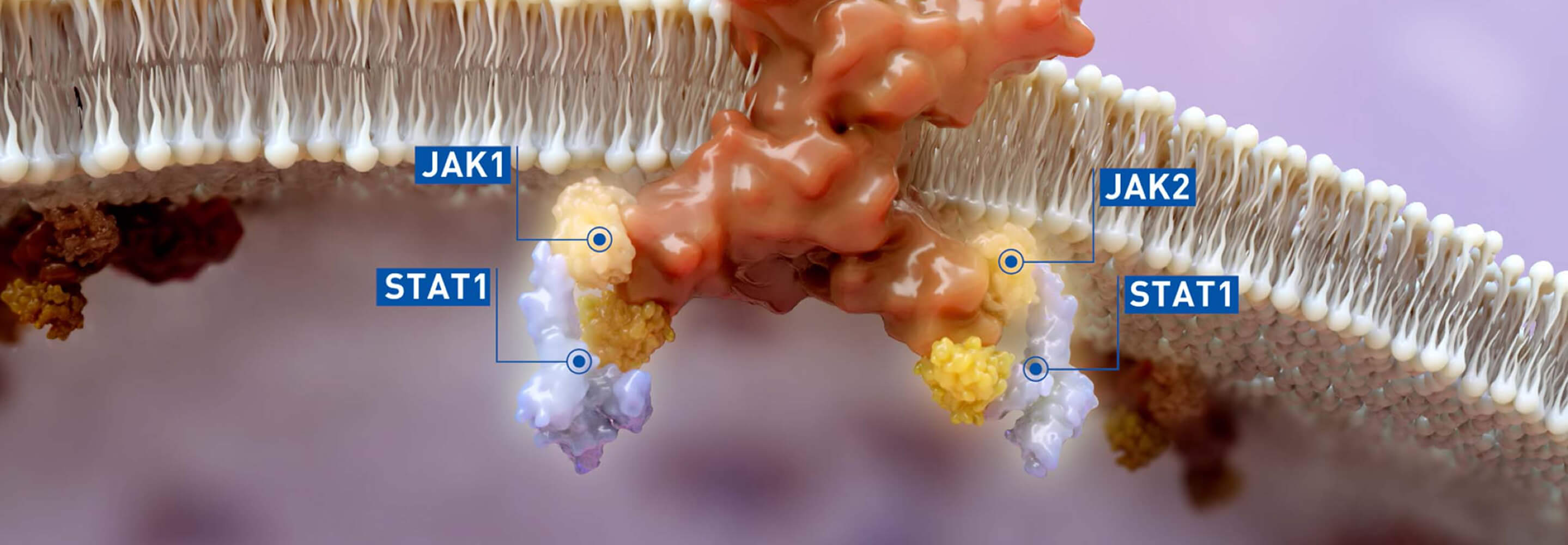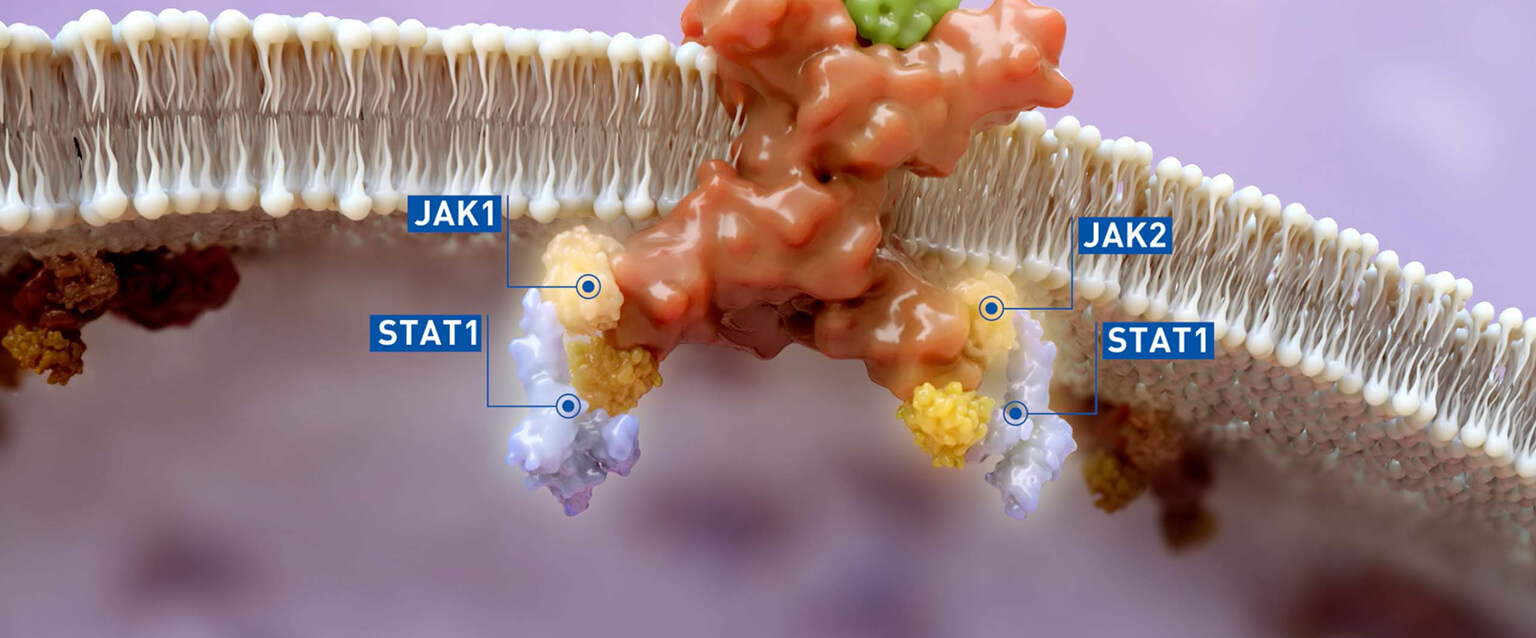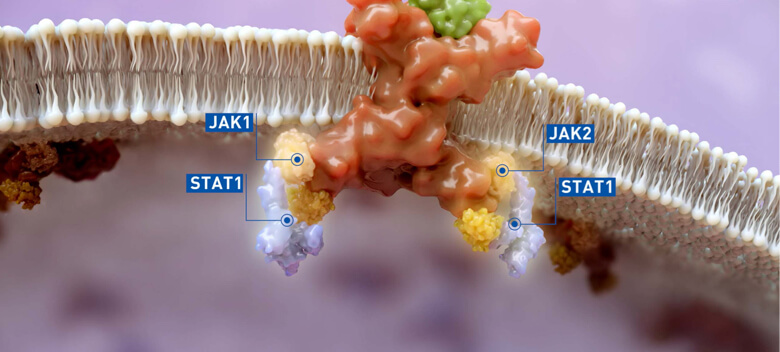November 20, 2022
What Can JAK Inhibition Do? More Than You Might Think.
Since our founding, Incyte scientists have focused on exploring the wide-reaching impacts of the immune system. Our research in this area has led us to discover and develop new treatments for patients with cancer and certain autoimmune diseases, including dermatologic conditions.
As we follow the science, important mechanisms, including the JAK-STAT pathway, have been shown to play a key role in our development of new medicines for immune-mediated diseases.
About JAK, the JAK-STAT Pathway and Its Role in Immune-Mediated Diseases
The JAK-STAT pathway plays an integral role in regulating cytokines and mediating inflammatory response. However, when the JAK-STAT pathway becomes dysregulated, or overly active, diseases can occur. Dysregulation of the pathway has been associated with increased growth of blood vessels that feed cancer, enhanced survival of cancer and suppression of the immune system.
The JAK-STAT pathway is a chain of interactions between proteins in a cell with three key parts: Janus kinases (JAKs), signal transducer and activator of transcription proteins (STATs) and receptors (which bind the chemical signals). This pathway takes information from chemical signals outside the cell into the cell center (or nucleus), which activates genes to ultimately change the function or activity of the cell.
Cytokines are small proteins that are important in controlling the growth and activity of other immune and blood cells. When released, cytokines signal the immune system to become activated and protect the body from foreign pathogens.
For example, overactive JAK pathway signaling is a key driver of a group of rare blood cancers called myeloproliferative neoplasms (MPNs), as well as other serious conditions affecting the immune system such as graft-versus-host disease (GVHD), which can occur after an allogeneic stem cell transplant. GVHD is associated with significant morbidity and mortality and can lead to a variety of skin conditions and immune disorders.
Understanding the JAK-STAT Pathway
Since 2002, our understanding of inflammation and autoimmunity, including the JAK-STAT pathway, has led to important scientific discoveries and new treatment approaches in oncology and inflammation and autoimmunity, including dermatology.
Our first approved therapy was a JAK1/JAK2 inhibitor discovered by Incyte scientists. After years of innovative research and testing, it is now approved globally to treat two types of MPNs—polycythemia vera and myelofibrosis—and patients with steroid-refractory acute GVHD or chronic GVHD.
“At Incyte, we always let the science guide us. Over the last 20 years, our understanding of the key pathways has deepened and our research has expanded. One area of focus has been uncovering potential applications for JAK inhibition that address significant unmet patient needs beyond our initial discoveries in oncology,” said Dash Dhanak, Ph.D., Executive Vice President and Chief Scientific Officer.
Our decades-long experience and exploration of the JAK-STAT pathway also led us to develop a topical treatment for atopic dermatitis—a chronic, immune-mediated skin disease that is the most common type of eczema—as well as vitiligo—a chronic autoimmune disease characterized by depigmentation of skin.
Looking Ahead
At Incyte, we are committed to finding solutions for some of the most critical unmet medical needs.
To learn more about our current portfolio, click here.




